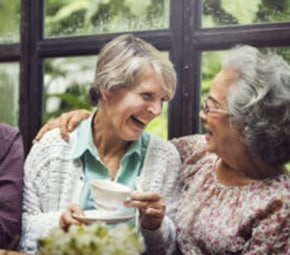The worsening of both long-term and short-term memory, unfortunately, goes hand-in-hand with aging. However, there are fun ways to keep your brain sharp, ways to be proactive about your mental health and ward off age-related forgetfulness.
Maintaining good mental health can be done by something as fun as playing games throughout the day, or as simple as switching up your normal daily routines. The important part is that you continue to test and challenge your mind.
Here are a few fun ways to keep your mind sharp as you continue to age:
- Get your body moving – Everyone knows that exercising on a regular basis is a great way to keep your body healthy, but did you know that it could actually help your mental health as well? Cardiovascular activities, such as biking, walking, or swimming, can raise your heart rate, which then increases the rate of blow flow to the brain. This actually increases the secretion of a protein that is necessary for long-term memory by enlarging the hippocampus. Remember to exercise for at least 30 minutes a day to keep both your brain and body healthy!
- Try telling a story – The process of sharing a story can help challenge and engage your mind. You can try getting a group of friends together and sharing stories from the past or even start a storytelling chain. You can take turns coming up with a subject or topic and then begin the story with a sentence. Then, the person on your left can come up with the next sentence. It may sound silly, but storytelling is a great way to give your creative mind a workout!
- Sleep – Getting a good night’s sleep prepares you for the next day while also improving your memory. A study conducted by George Washington University proved that sleep is a key time for solidifying the connections between neurons in the brain. Seniors should be getting at least eight hours of sleep a night.
- Deal with stress – Being stressed out can actually cause damage to your brain. Chronic stress can even damage the hippocampus and destroy brain cells! Manage your stress levels by taking part in fun activities in your assisted living facility or by taking breaks throughout the day. Don’t force yourself to do something that causes you a lot of stress.
Don’t forget these helpful ways to improve your memory! For more information on assisted living, please contact Angels Senior Living today at (877) 480-2244 today.






